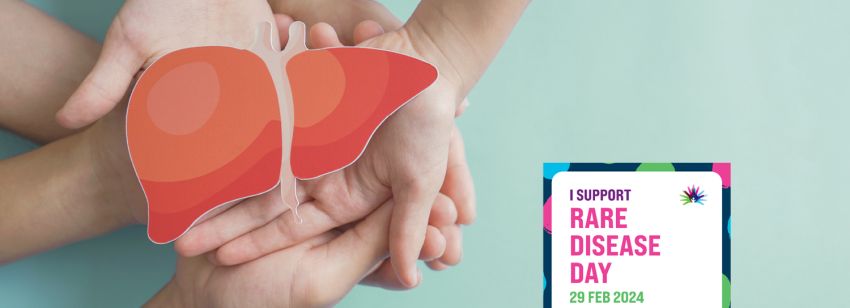Primary sclerosing cholangitis (PSC)
Liver damage and the fear of cancer due to the rare disease of the bile ducts
With a prevalence of 1 – 10 cases per 100,000 inhabitants, 60 % of PSC patients are men. The causes and mechanisms of PSC have not yet been fully researched. It is assumed that genetic and external factors are involved in the development of the disease. Genetic changes that could potentially indicate a hereditary predisposition are manifold and more than 20 genes have already been identified that might favor the development of the disease.
One of the last black boxes of hepatobiliary diseases
Recurrent and persistent inflammation of the bile ducts inside and outside the liver leads to pathological narrowing and hardening (sclerosis) of the structures and results in chronic bile stasis (cholestasis). Metabolic processes are impaired by the disturbed bile flow and the resulting progressive damage to the liver cells (hepatocytes) leads to the development of scar tissue (fibrosis), which in the final stage progresses to liver cirrhosis. Patients are between 30 and 45 years old at the time of initial diagnosis and have a significantly increased risk of cancer due to PSC.
The symptoms and course of the disease can vary greatly from patient to patient. The liver is a pain-insensitive organ and one of the challenges of the disease is that most patients (50 %) remain asymptomatic for a long time. The primary noticeable symptoms of the disease such as fatigue, itching and pain in the right upper abdomen are non-specific and the diagnosis of PSC is generally challenging. As the disease progresses, further symptoms such as fever, night sweats and jaundice are added. Cholangiocellular carcinomas (CCA, affecting the bile duct system) are the most common type of tumor, affecting 10-20 % of PSC patients in 30 years and occurring 400 times more frequently than in the general population. Generally, the disease progresses slowly and leads to the need for a liver transplant or death within a median of 14.4 years after diagnosis. The inherent fear of developing cancer, the frequent concomitant diseases and the progressive liver damage, which slowly but surely progresses to liver cirrhosis, reduce life expectancy and lead to significant reductions in the quality of life of those affected.
PSC treatment is characterized by the lack of targeted, effective and curative therapies
The treatment of PSC is complex and depends on the individual severity and the stage of the disease. The causes of the disease are not yet fully understood, which makes it difficult to develop causal therapies. There are currently no approved drugs for the treatment of PSC, and no effective or curative treatments that slow down or even stop the progression of the disease.
The symptoms of PSC often fluctuate, and the provided treatments are mainly used to alleviate the disease symptoms. Often the disease comes in waves of acute cholestasis, flare-ups of bacterial cholangitis, or flare-ups of concomitant IBD followed by phases in which disease symptoms are less present. Anticholestatic drugs, antibiotics and immunosuppressants have been used to treat acute conditions, concomitant diseases, and cholestasis, but there is no evidence, that the existing therapeutic options are safe, effective, and long-lasting regarding their therapeutic effects. Non-medicinal therapies primarily include endoscopic-interventional dilation, but also surgical removal of the gallbladder (cholecystectomies) and liver transplants can or should be used as late therapeutic options in advanced disease stages.
No currently available treatment option can prevent progression to liver fibrosis, liver cirrhosis, and the development of cancer. There is a great need for new, effective treatment options that enable targeted therapies of this rare disease to significantly improve the patients' quality of life and to counteract the premature death of comparatively young patients.
As a strategic consultancy in the healthcare sector, SKC is committed to ensure that new drugs for rare diseases gain access to the European and German market and thus improve the care of affected patients. Therefore, in this blog series related to the Rare Disease Day, we report on selected rare diseases in order to raise awareness and perception for those.
Sources:
- Deutsche Leberstiftung 2023 (accessed 05.02.2024)
- Wiegand et al. 2013, Ätiologie der Leberzirrhose; Deutsches Ärzteblatt (accessed 01.02.2024)
- Lutz et al. 2013, Primäre sklerosierende Cholangitis; Deutsches Ärzteblatt; 110(51-52): 867-74;
- NIH, U.S. Department of Health and Human Services (accessed 02.02.2024);
- Chazouilleres et al. 2022; European association for the study of the liver; Clinical Practice Guidelines; Volume 77, Ausgabe 3, P761-806;
About the author

Senior Consultant
M.Sc. Business Administration for Scientists
Fax: +49 511 64 68 14 18




